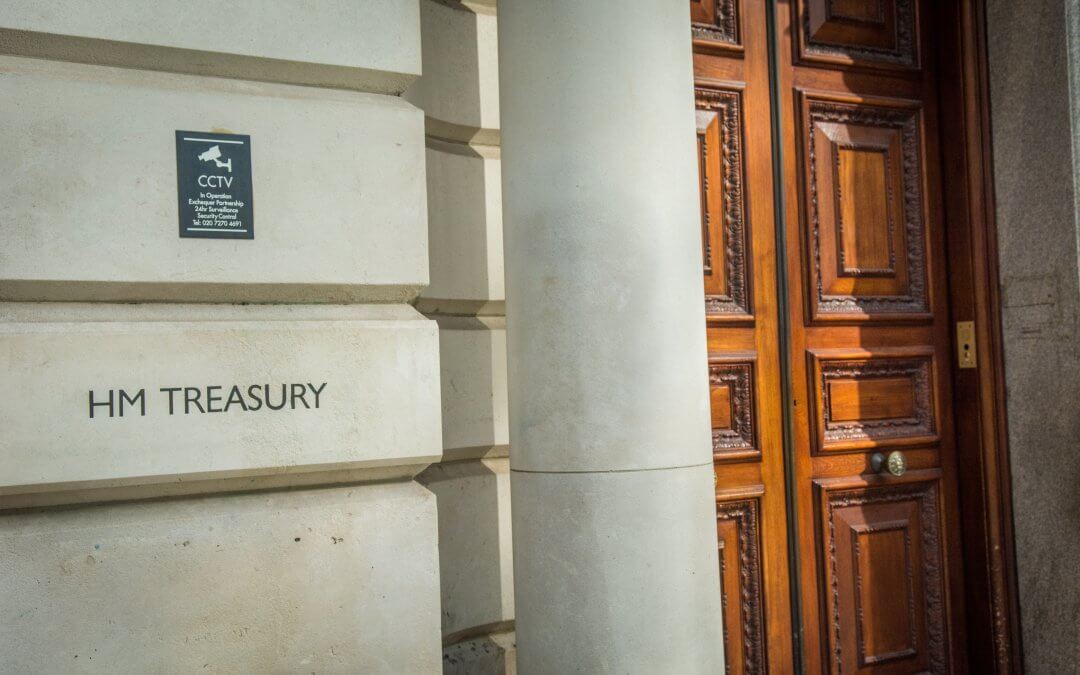With the Autumn budget 2021 announcement on 27th October 2021, Chancellor Rishi Sunak set out new financial initiatives and plans that will affect small businesses in the UK. Here’s what happened:
Recovery Loan Scheme extended
The Recovery Loan Scheme was created in response to the COVID-19 pandemic and was scheduled to close on 31st December 2021. The recovery loan scheme has been extended to 30th June 2021.
Who will this affect: Businesses who are eligible and want to apply for the scheme.
Positive / Negative: Positive
£1m level of Annual Investment Allowance extended
The current level of the Annual Investment Allowance is £1m and will be extended until March 2023.
Who will this affect: businesses that claim Annual Investment Allowance on qualifying assets.
Positive / Negative: Positive
Business rates relief
The current 66% discounts on business rates for retail, hospitality and leisure businesses will increase in 31st March 2022. As of April 2022, businesses in these industries will receive a 50% discount on business rates up to £110,000.
From 2023, there will also be a 12 month, 100% improvement relief on business rates and business rates will be reviewed every 3 years.
Who will this affect: Retail, hospitality and leisure businesses and businesses who are looking to make improvements on their property.
Positive / Negative: Positive
Increase in National Insurance
As of 6th April 2022 to 5th April 2023, National Insurance contributions from self-employed, employees and employers will increase by 1.25% to help cover NHS and equivalent bodies costs.
Who will this affect: Employees, employers and self-employed.
Positive / Negative: Negative
Increase of Normal Minimum Pension Age
The current age from where most people can access their pensions without incurring an unauthorized payments tax charge is 55. As 6th April 2028 this will be raised to 57 years old.
Who will this affect: Business owners who want to access their pension at 55 or 56 years old after 2028.
Positive / Negative: Negative
National Minimum Wage and National Living Wage increase
The national minimum wage and the national living wage will increase as of Aril 2022.
| Rate from April 2022 | Current rate (April 2021 – March 2022) | % Increase | |
| National Living Wage | £9.50 | £8.91 | 6.60% |
| 21-22 Year Old Rate | £9.18 | £8.36 | 9.80% |
| 18-20 Year Old Rate | £6.83 | £6.56 | 4.10% |
| 16-17 Year Old Rate | £4.81 | £4.62 | 4.10% |
| Apprentice Rate | £4.81 | £4.30 | 11.90% |
| Accommodation Offset | £8.70 | £8.36 | 4.10% |
Who this will affect: Business owners who pay national minimum wage or National living wage as they will need to factor in this rise in employee wages.
Positive / Negative: Negative for business owners who relied on paying employees a lower minimum wage. Positive for employees
Freeze on fuel duty
The Treasury previously considered a rise in fuel duty on petrol and diesel has now been frozen. This means that compared to previous plans, on average the amount saved per full tank is £15 for a car, £30 for a van and £130 for HGVs.
Who will this affect: Businesses that rely on vehicles and use a lot of fuel.
Positive / Negative: Positive
Dividend tax increase
Income Tax applicable to dividend income will increase by 1.25% to help support the NHS and social care. This applies to all rates. The dividend allowance will remain the same at £2,000.
| Current | Apr-22 | |
| Ordinary rate | 7.5% | 8.75% |
| Upper rate | 32.5% | 33.75% |
| Additional rate | 38.1% | 39.35% |
Who will this affect: People who are paid via dividends, over £2,000 a month.
Positive / Negative: Negative
Additional R&D tax relief
The R&D tax relief will be made available to a wider range of business costs to include data and cloud costs and will be focusing on innovation in the use and targeting abuse and improvement compliance.
Who will this affect: Businesses who are looking into innovating their company and take advantage of the R&D tax relief.
Positive / Negative: Positive
Change in basis period reform
From April 2024, Self-employed traders, partnerships and other unincorporated entities will pay tax on the profits they earn during the tax year, regardless of their accounting year, which can overlap, which can mean tax is paid double.
Who will this affect: Self-employed traders, partnerships and other unincorporated entities.
Positive / Negative: Positive
Reducing alcohol duties
Main duty rates will be cut from 15 to 6 to end cheap, high strength drinks and simplify the system. The planned increased duty on spirits in 2023 will be cancelled as of 27th April 2021 and there will also be a cut on duty rates on draught beer and cider by 5% (3p) will come into effect in 2023.
Who will this affect: Pubs, bars, restaurants and other businesses that sell alcohol.
Positive / Negative: Positive
For full details on the Autumn 2021 budget, you can visit the governments website.

